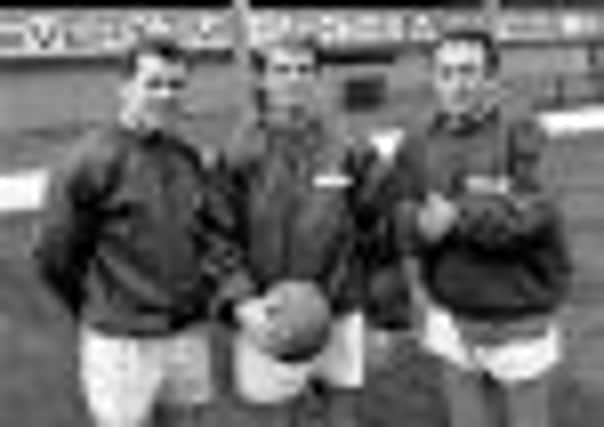Billy Hunter’s memories inspire him to help struggling ex-players


Now 72, he has fond memories of every stage of his football career. Thousands of them.
But he also knows other former players, some not much older than him, who are less fortunate. Those players – and they are increasing in number by the month – have dementia.
Advertisement
Hide AdAdvertisement
Hide AdKnown to many during his playing days as Willie, Hunter began doing voluntary work for a children’s charity when he finally retired from the game. More recently, he has been working with Alzheimer Scotland on the Football Memories project, organising social events with some of those old colleagues, helping them to remember the old days and to fight against the illness which has afflicted them. To respect the men’s privacy, they remain anonymous. Some of them were very well known, and share a love of football which can be rekindled simply by looking at photographs from the old days and talking about them.
As Hunter explains, it was Falkirk historian Michael White, the author of a book about the club’s 1957 Scottish Cup win, who got the whole thing started. “Michael went into a home one day and saw a chap in the corner, who he recognised as a former Falkirk player,” Hunter says. “He couldn’t get much from him, but he went back a couple of weeks later with photographs. And after five minutes they were talking about all the people in the photos. Some people lose their memory a wee bit and it’s just a case of trying to engage with people. Photographs are fantastic to jog memories.”
There are many different types of dementia, Alzheimer’s being the most common, and people from all walks of life can be affected. Hunter and a growing body of scientific opinion are convinced that, in the case of many footballers, the heavy ball they used to head has to be a contributory factor. “I haven’t got a lot of money but I would bet all my money that there’s a connection. At first, when only a couple of players had been diagnosed with dementia, people said it must be to do with heading the ball and once the numbers had grown there was an experiment they did. That old football that they used to play with, they put that in a vat of water overnight, and they computerised a wall. The following day, somebody battered the ball against the wall, and every time it hit the wall there was a reading. They said then it was like getting hit on the head by a punchbag.” Back in Hunter’s playing days, the balls used were heavier, particularly on wet days – hence the experiment.
Although he is convinced of the connection, he thinks there is still a long way to go before it is formally recognised, and perhaps even longer before football clubs accept that they have a responsibility for the welfare of their ex-employees.
“Even at school you’d head the ball a lot but, as a professional player, you’d be heading it forever. So eventually something is going to happen and a link will be accepted.
“A lot of research has been done in America, on all contact sports. With American football they have helmets on but, when they clash, it can be worse not better.
“If anybody in the UK says players will suffer and have suffered because they’ve headed the ball a lot, then you’ve opened Pandora’s Box, because there will be all sorts of claims.
“As a professional you’ve got a job description and that’s what you do. What protection were those players given by their employers? None at all. Not that we would have wanted it or asked for it back then, but you might have had a claim. So they might wait, like they did with the miners. Wait until most of the men are dead, then find one guy and give him some money. That’s how I think it could work.
Advertisement
Hide AdAdvertisement
Hide Ad“A lot of footballers I know have vascular dementia. They get tiny strokes and start losing their memory. Whatever causes the stroke I don’t know – could that be related to heading the ball?”
While science continues to assess the causes of Alzheimer’s, Hunter and his colleagues carry on dealing with the consequences.
• Billy Hunter was speaking to promote Alzheimer Scotland’s project Football Memories, which is to be the first beneficiary of the Weatherseal SPL Charity Weekend on 8/9 December as selected via supporters’ vote. Weatherseal, the SPL’s official home improvement partner, have gifted their marketing rights to Football Memories, and their staff will collect funds outside all top-flight fixtures this weekend.